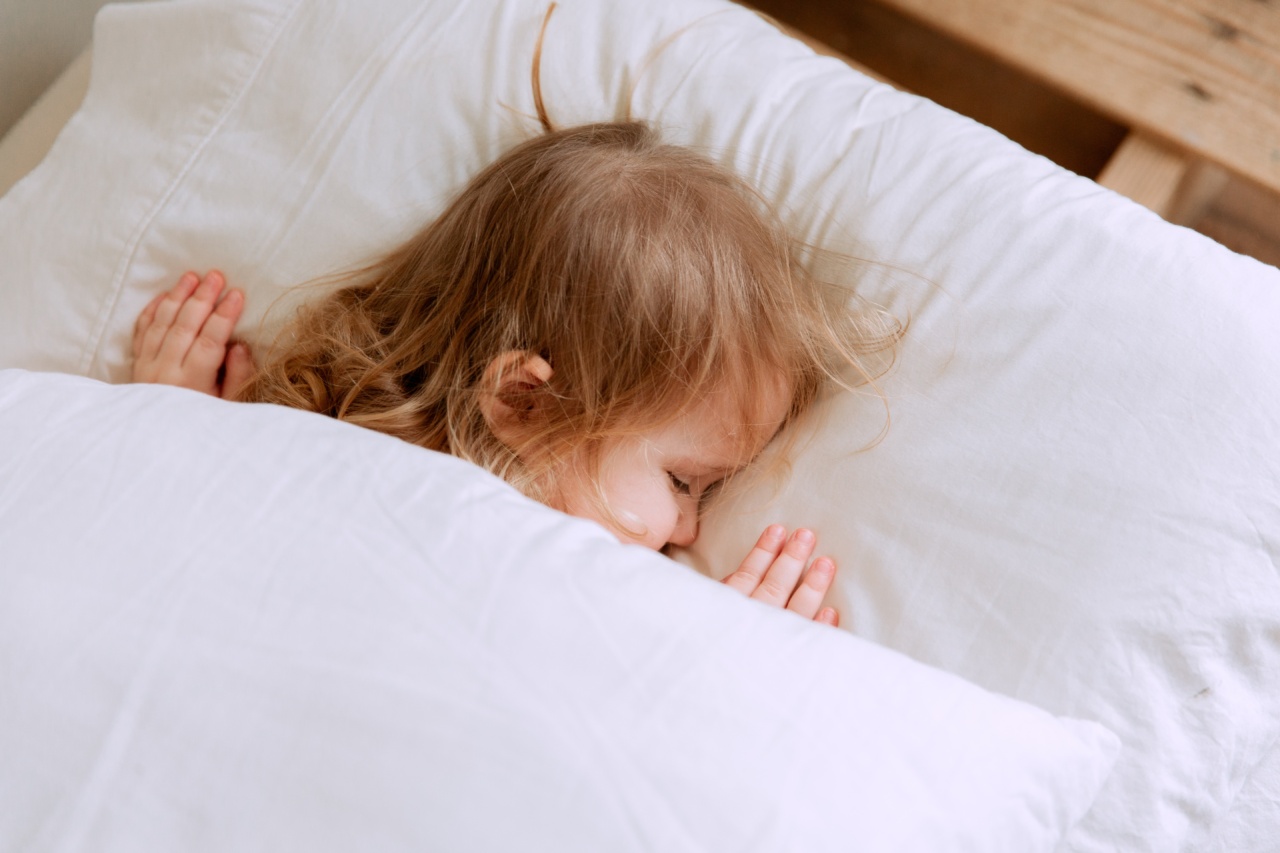As a parent, one of the most precious things you cherish is your baby’s sleep. It allows them to grow, develop, and recharge their little bodies for the adventures that lie ahead.
However, there are often instances where your baby’s sleep can be disrupted, leaving both you and your little one feeling exhausted. In this article, we explore the three common things that disturb your baby’s sleep at night and provide helpful tips on how to tackle them.
1. Hunger
Hunger is a natural human instinct that affects babies just as much as adults. If your baby is hungry, it will undoubtedly wake them up in search of nourishment.
Newborns especially have small tummies that cannot hold much milk, so they need to feed more frequently. Meeting your baby’s nutritional needs is crucial in ensuring a good night’s sleep.
To combat hunger-related disturbances, try to establish a feeding routine. Feed your baby just before bedtime and ensure they have a full tummy. As babies grow older, they will need fewer nighttime feeds.
Gradually reduce the number of feeds during the night to encourage longer stretches of sleep.
2. Discomfort
Discomfort can take many forms, ranging from a wet diaper to feeling too hot or too cold. Babies are not yet skilled at communicating their discomfort, so it’s essential to be proactive in identifying the causes.
Discomfort can significantly disrupt your baby’s sleep and lead to frequent waking during the night.
Check your baby’s diaper before bedtime and change it if necessary. Some babies are more sensitive to wetness than others. Additionally, ensure your baby’s sleep environment is at a comfortable temperature.
Use appropriate clothing and bedding to regulate their body temperature and prevent overheating or chilling.
If your baby is teething, discomfort may be amplified. Teething rings or other teething remedies can help soothe their sore gums.
Establishing a soothing bedtime routine, such as a gentle massage or lullaby, can also aid in making your baby feel more comfortable before sleep.
3. Overstimulation
Overstimulation is a common factor that disturbs your baby’s sleep. Too much activity, noise, or bright lights can make it difficult for babies to settle down and fall asleep peacefully.
A calm and peaceful environment is crucial for your little one’s slumber.
Creating a relaxing bedtime routine can help signal to your baby that it’s time to wind down. Dim the lights, reduce noise levels, and engage in calming activities such as reading a bedtime story or playing soft music.
Avoid exposing your baby to stimulating screens, such as smartphones or tablets, close to their bedtime as the blue light emitted can interfere with sleep.
Ensuring your baby has a safe, comfortable, and dedicated sleep space can also aid in reducing overstimulation.
Use blackout curtains to create a dark sleep environment and consider using white noise to drown out any disruptive sounds that may disturb your baby’s sleep.
Conclusion
Understanding the factors that disturb your baby’s sleep is essential in promoting a healthy sleep routine. Hunger, discomfort, and overstimulation are common culprits that can rob your baby of a restful night’s sleep.
By addressing these issues through simple adjustments and establishing a sleep routine, you can help your baby sleep better, leading to improved overall well-being for both you and your little one.






























